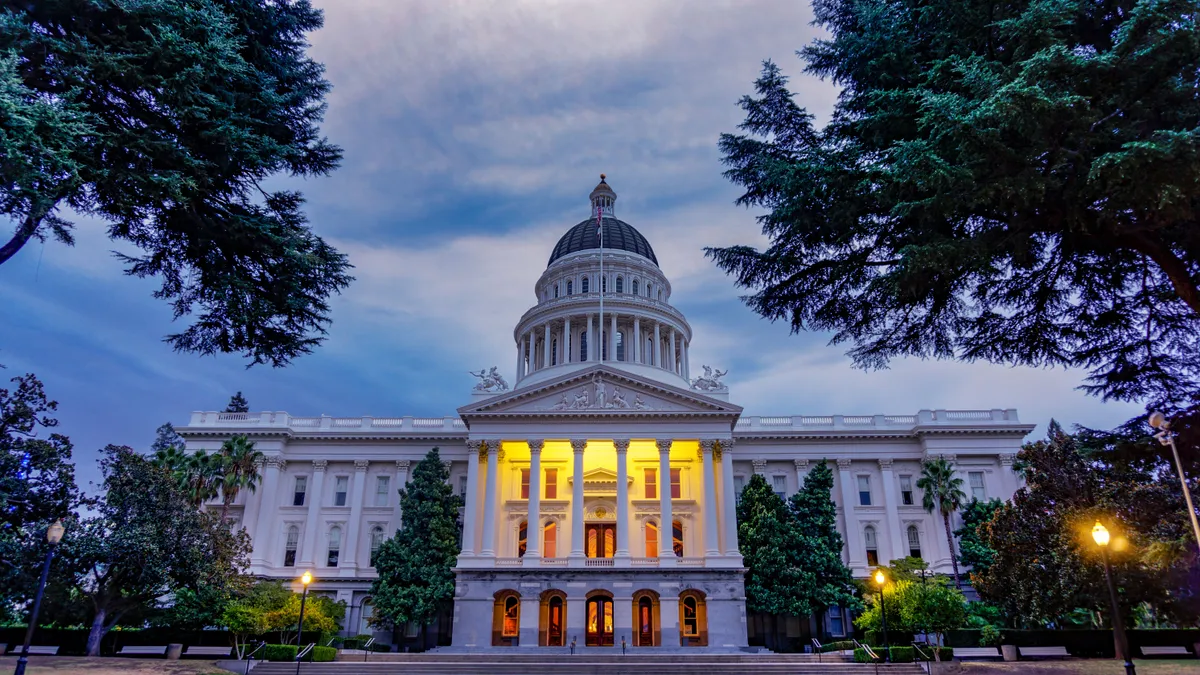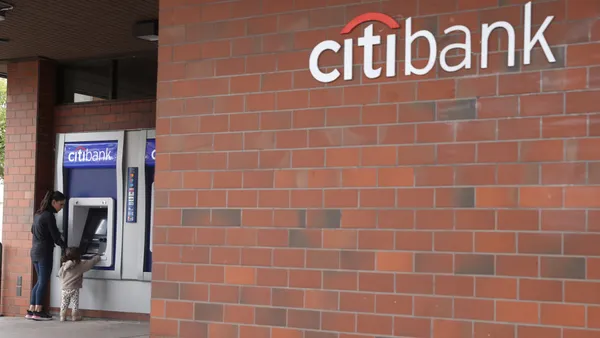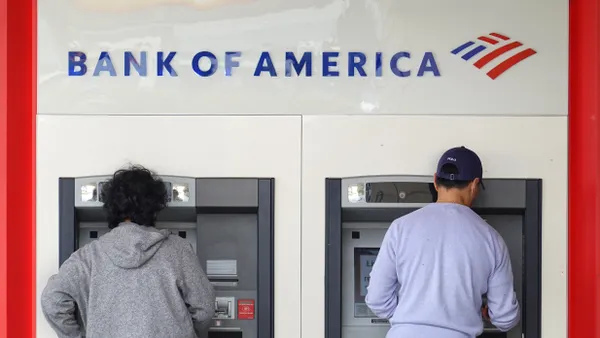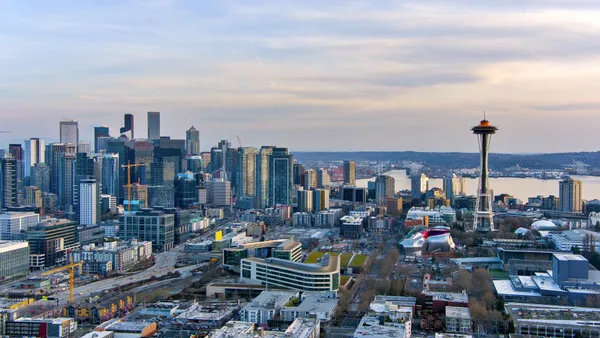Dive Brief:
-
California lawmakers are backing a bill to create BankCal, a government program that would offer a "zero-fee, zero-penalty" consumer banking option to the state’s residents. The measure is aimed at "protecting consumers who lack access to traditional banking services from predatory, discriminatory, and costly alternatives."
-
Assembly Bill 1177, which lawmakers and advocates unveiled last week, would establish a Public Banking Option Board, which would partner with financial institutions to offer the free accounts. California employers with five or more employees would be required to facilitate direct deposit, when requested, into the account.
-
The bill is scheduled to be heard April 29 before the Assembly Banking and Finance Committee.
Dive Insight:
The push among lawmakers and consumer groups for a fee-free banking service that would eliminate the need for the unbanked to turn to check cashers and payday lenders has grown in recent years.
"California families are losing hundreds of millions of dollars in fees a year to payday lenders and check cashing stores that prey on the most vulnerable," Democratic Assemblymember Miguel Santiago, lead author of the bill, said in a statement. "With BankCal, more families will be able to keep the money they’ve earned, put food on the table, and build their savings."
BankCal’s features would include a debit card, automatic bill pay capacity and free ATM access at participating banks.
"[The California Public Banking Option Act] reflects the concept that banking is a public utility that should be in the hands of the people," Ellen Brown, chair of the Public Banking Institute, a national think tank in Santa Clarita, told the Los Angeles Times.
Proponents of AB 1177 say the current economic hardships brought on by the coronavirus pandemic have heightened the need for alternative banking options.
"During the pandemic, we witnessed the need for rapid distribution of stimulus and unemployment payments and the broken systems incapable of delivering timely relief," Holden Weisman, a policy expert at Washington nonprofit Prosperity Now, told the Los Angeles Times. "BankCal would significantly improve access for vulnerable families."
One in four California households and nearly half of Black and Latinx California households, are either unbanked or underbanked, according to the California Reinvestment Coalition, which cited data from the Federal Deposit Insurance Corp. (FDIC).
The California Bankers Association (CBA) will oppose the bill, according to the Sacramento Business Journal. CBA spokesperson Beth Mills told the publication banks already provide free or low-cost accounts.
California has used legislation in an attempt to establish alternative banking options for its residents in the past.
In 2019, it became the first state in the nation to create a framework that allows municipalities to establish public banks, after the passage of Assembly Bill 857. The law’s passage, however, has yet to result in the establishment of a public bank in the state.
The Bank of North Dakota is the only state-run public bank in the U.S.
Meanwhile, the FDIC announced a new effort to quell an expected growth in the nation’s unbanked and underbanked numbers as a result of the pandemic.
The regulator on Tuesday launched #GetBanked, a campaign aimed at raising awareness about the benefits of opening a bank account. The effort is at first focused on the Atlanta and Houston markets, where the FDIC’s research finds Black and Hispanic households are disproportionately unbanked.
"Having a basic checking account can be an important first step to becoming part of the financial fabric of this country," FDIC Chairman Jelena McWilliams said in a statement. "I know from my personal experience that starting a banking relationship can offer a greater sense of belonging and expand economic opportunities."
In the past year, some lawmakers have called for the reestablishment of postal banking in an attempt to expand financial services to the unbanked and to create an alternative revenue stream for the cash-strapped U.S. Postal Service.















